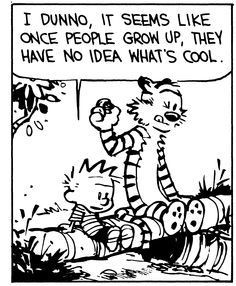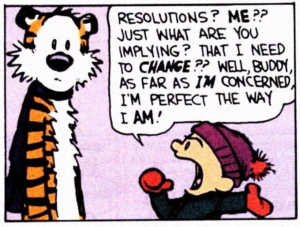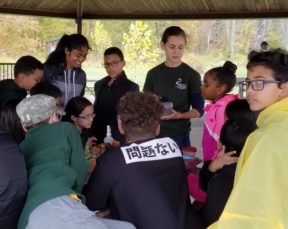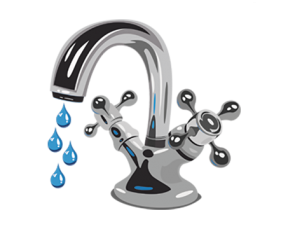By Hazel England, Director of Education, Outreach and Stewardship
Training and Learning with GSWA
While water quality monitoring, environmental education, advocacy and land stewardship are the primary focus of GSWA, we also have a responsibility to share knowledge with future scientists, educators and advocates. Learning by doing is a good way to build experience, and we’ve developed a robust intern program to do just that! Over the years we’ve engaged countless interns, from local area high schoolers undertaking senior year experiences, to semester long college interns from area colleges such as Drew University, Fairleigh Dickinson University or William Paterson University. We get many requests from returning college students or recent graduates home for summer and desperate to build resumes and glean job experience, or under pressure from long suffering parents to get out and do something! Our email inboxes begin pinging in January with the onslaught of requests for potential internship advice and guidance, or available summer opportunities. For the last few years I have spoken about my own work experience and pathway as part of Drew University’s Capstone series, speaking to classrooms of Environmental Science seniors just a few months away from entering the job market. Since GSWA staff have all been in that unenviable position, we try to give people time and advice.
College students are focused on the here and now- their grades, course selections, and ensuring they meet prerequisites for their degree. It can be daunting to also think about the future. When we speak to students about the types of skills, traits and attributes a good intern or prospective employee must cultivate, they are often nonplussed by the necessary soft skills we as potential employers are looking for.
Essential Life Skills
In my own home, we joke that these are ‘Essential Life skills’– the things you really need to know to survive in the world and don’t learn in class! Everybody’s life skills list differs. Mine includes such critical skills as knowing how to change a flat tire, write a good thank you letter (even for a horrendous gift), do a disaster free load of washing, to being able to cartwheel, make an acorn cap whistle, or conduct polite conversation with a total airhead!
While the essential life skills will change over time- it’s no longer necessary to know how to balance a check book- focusing on employing good soft skills as a potential intern can enable you to be a successful employee. During Capstone program discussions I often ask what skills students think successful interns/prospective employees should have. Students call out responses, and their list often includes traits such as: Good data analysis, relevant environmental courses, field research skills and competency in Microsoft Office. While these are all valuable skills, students are often surprised that the life skills I think most valuable have little overlap to their own!
1. Great communication skills
…top my list as the life skill most underrated by prospective interns as one to demonstrate. Yet, they are most valued by organizations for potential interns and employees to possess! Whether you want to be a field ecologist, work as a researcher, or save the world through your novel sustainability idea, you will without a doubt need to know how to talk and write well and to communicate effectively with different audiences. Blanket emailing a generic letter to fifty area organizations asking for a job will never be as effective as a personalized letter showcasing your good writing and research skills. We can immediately tell the difference! Interns who effectively show they have dug a little deeper into the work we do, and speak specifically to what they would like to get out of an internship, as well as what they can offer, stand out. Impress us with your thoroughness and writing ability (P.S. here and here are some blogs written by and about our wonderful interns), don’t write to us as if we were an old friend you are texting to arrange a get-together at Starbucks! If you feel your writing or speaking skills need bolstering, tell us those are skills you wish to strengthen- this type of honesty tells us you want to grow through your internship and are prepared to work hard to gain essential resume skills.
2. Tenacity and persistence.
Most nonprofit staff are overloaded. We are super busy checking emails from the field or on the go, so if you send an email and don’t hear back, reach out again. Show some persistence. Though it happens unintentionally, we might ignore your first communique, so always follow up! Leave a voicemail. Demonstrate interest-just as colleges often require prospective students to do, we tend to respond positively to those who show us they are interested in learning what we have to offer by their tenacity. Over the years, the best interns have often been those that quickly learn how to get and hold our attention. If we say to call us at a particular time, call us- if you are running late or can’t make a meeting, let us know. This may sound like duuhh- simple common sense, and it is, but it’s amazing how many prospective interns passively wait to be chased up. If this is the organization you have targeted for an internship, demonstrate your interest be following though. If we contact you with potential opportunities several times and you don’t get back to us, we’ll stop including you in future offers. Follow up, follow up, and follow up.
3. Be Flexible and Available!
We understand you may need to work a paying job or take classes while you intern with us, and we support many interns who do just that. Our experience shows that the more you invest, the more you will learn and grow from your internship. Perhaps you can spare two full weeks and are available every day for that time period. Great! Or around work commitments you can offer up a Tuesday and Friday every week all summer- fine by us. When prospective interns are upfront about their constraints, but show willingness to be flexible in order to gain experience, we are more likely to respond in kind. Telling us that you are available one day a week after 3:30pm and another before 11am doesn’t show that this internship is a priority for you, especially if we happen to be water sampling from 7:30am until 5pm or conducting a stewardship workday all day!
4. Give a little, get a little.
It’s important to understand that in internship experience is a give and take between the organization and the individual. We invest energy in offering you training and field experience, and in return you help on a variety of tasks we need accomplished. We are more willing to put ourselves out to show you new skills if we see the same level of commitment from you. Interns need to be realistic about their value to an organization. If you want to add to your resume that you have chemical and biological water sampling experience, then you have to put in the required effort be gain those skills. It can be frustrating to invest time in training interns in a technique, and then have them unavailable to help whenever you need to put that skill to work!
5. Engage!
I recently received a request to write a graduate school recommendation from an intern from five years ago. Since they had stayed in touch, sent occasional updates, and stopped in to say hello when they were home, I was happy to do it- we were still connected. Recommendations from GSWA, whether you were a high school or college intern, can highlight relevant skills when you apply for your next position. If, as an intern you often showed up late, didn’t finish tasks or demonstrate much enthusiasm, it’s hard for us to rave about you to your potential new employer! The more you engage and opt to try new things, the more you learn about what you like and don’t like in your chosen career field. Realizing what you don’t like can often be as instructive as learning what you do!
6. What’s the goal?
I often ask our interns what ideal job they see themselves working in their future. If there were no limits, what would be their dream job? Sometimes it isn’t a question they have thought much about before. Visualizing exactly what you would love to be doing in five years’ time may help you to focus on what skills you need to gain now to get you there, and help get more out of work experiences you undertake. Being realistic about what you know and don’t know at this point in your fledgling environmental career can help you make more informed choices about what should be your next steps. Nowadays it is not as easy to walk into a great job straight out of college. Relevant work experience, and honed essential life skills, whether gleaned from dealing with difficult customers as a waitress, conducting data analysis for a nonprofit or striving to make an urban high school student excited about macroinvertebrates and their role in water quality can often be the edge you will need to get called for an interview, or receive the next step on your pathway to your dream job!
If you are interested in interning with us, bear the above in mind, then email us. Hazel England hazele@greatswamp.org or Sandra Lavigne sandral@greatswamp.org. Good luck!





